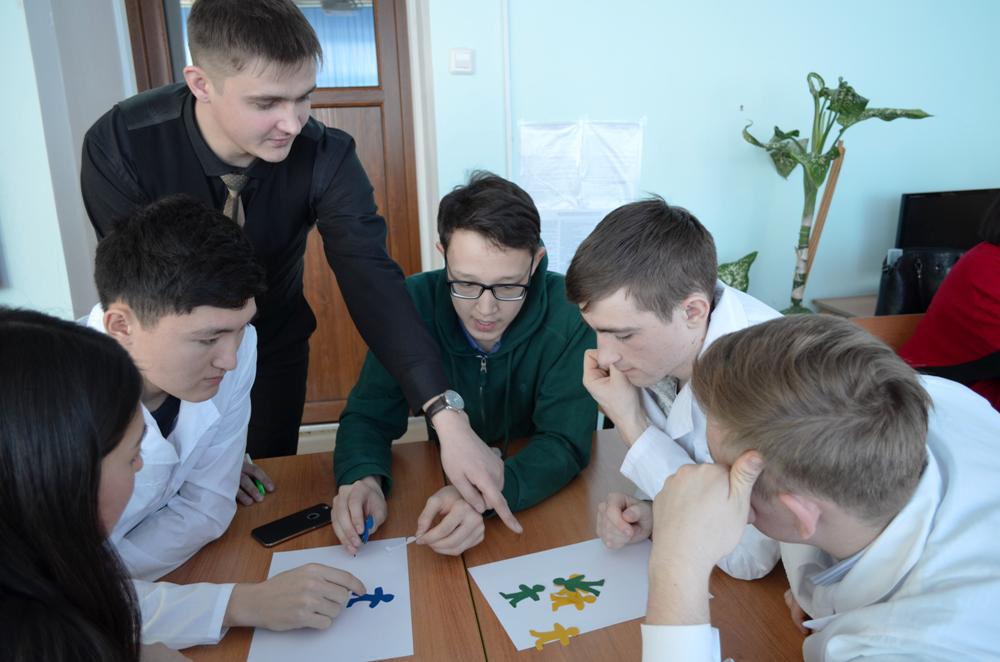
"Interactive teaching methods"
- Details
- Published: 18 January 2018

January 18, 2018 teachers of the Natural Sciences Chair-Associate Professor Belan O.R. and senior lecturers Kobez T.S. and Akhmetchina T.A.realizied a methodical seminar with the participation of teachers and students on the topic "Interactive teaching methods".
Teachers gave the benefit of experience of use an interactive approach to learning on the example of their courses (Physical Methods of Research in Chemistry "," Ecology and Basics of Life Safety ", etc.).
Modern education system requires a variety of forms, approaches, methods and techniques. Requirements for the personal qualities of students become relevant - this is the skills to independently replenish and update knowledge, to search for the necessary teaching materials. This methodical seminar was devoted to these problems.
Priority in teacher's work is gave to the methods of mediated pedagogical influence: there is a renounce of frontal methods, from slogans and appeals, edification; instead, dialogic methods of communication, the joint search for truth, development through the creation of educational situations, various creative activities are brought to the fore.
The seminar presents the results of the introduction of innovative technologies, studied during the advanced training courses at the University of Newcastle (Newcastle, Great Britain, June, 2015) for university lecturers.
In scientific and pedagogical activity, Kobez T.S. uses the technology of project training. The implementation of the technology is carried out in two versions: introduction in the educational process; introduction in the research work of students.
Training of students on the technology of project training is carried out in the classroom on the discipline "Physical methods of research in chemistry."Within the framework of the SRWS the work is carried out according to the following principle:
- Message of purpose;
- Specification of the desired result;
- Motivation (indicating the need for a result);
- Determination of the time interval for execution.
As an example of the project, the teachers at the seminar were offered a logical riddle "Raft" (Japanese version).The solution to this type of problem allows you to better understand the problem and determine the sequence of actions and priorities for "interfering" factors.
In conclusion, it was noted how useful these activities are in a well-placed, interested, benevolent environment.




